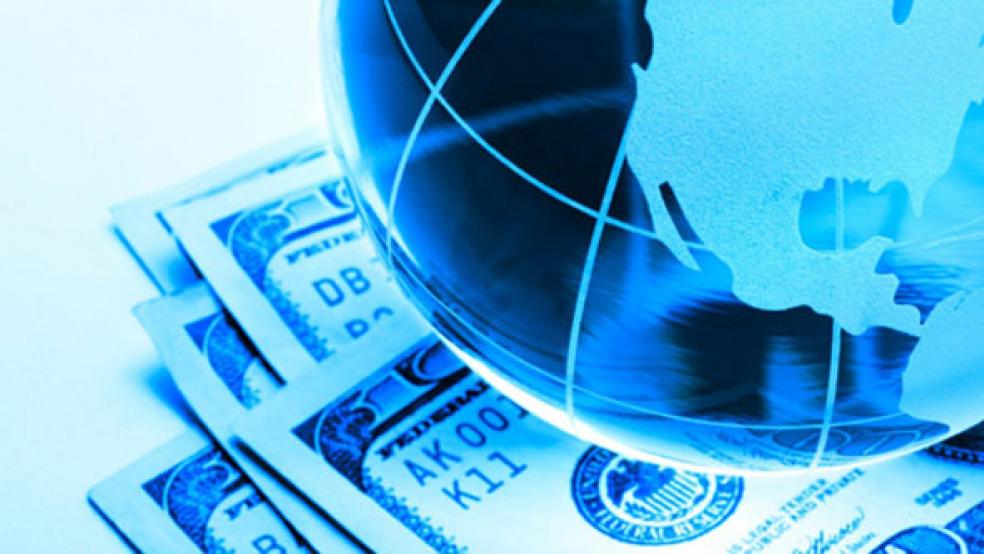What is the biggest risk to the global economy on the horizon?
According to the recent forum on worldwide markets hosted by the investment firm Pimco, it is not the planet-wide trade war that was feared when candidate Donald Trump talked about canceling agreements, bailing out of the World Trade Organization and slapping tariffs on imports from countries accused of cheating. Instead, it’s a face-off between America and one of its largest trading partners, China.
Related: The Trump Administration Thinks We’re Already in a Trade War
The forum in May featured speakers such as former House Speaker and Trump supporter Newt Gingrich, former Treasury Secretary Larry Summers and former U.S. Ambassador to China Gary Locke.
Distilling what was said, a Pimco report released last week offered this: “Perhaps the central risk scenario is not the outbreak of a global trade war with the U.S. unilaterally withdrawing from the World Trade Organization (WTO), but rather a high-stakes bilateral trade renegotiation between the U.S. and China outside of the WTO dispute settlement forum, a process U.S. Trade Representative Robert Lighthizer calls ‘derogation.’”
Certainly, the American-Sino relationship has become ever more complicated in the Age of Trump.
Even as the president and his chief strategist Steve Bannon move the U.S. toward “America First” and “economic nationalism,” China is trying to position itself as a champion of economic globalization.
In January at the World Economic Forum in Davos, Chinese President Xi Jinping made his bid to fill the gap seemingly being vacated by the about-to-be inaugurated American president. “That a leader of the People’s Republic of China can stake a claim to the mantle of leadership in the realm of free trade speaks to the unforeseen, even surreal alteration of the global order in recent months,” The New York Times wrote.
Last week, Xi followed up on his quest to be taken seriously as the most powerful voice for globalization by reaffirming China’s commitment to the Paris climate change agreement.
Related: Donald Trump and America’s Benighted Self-Interest on Climate Change
“As the Trump administration has stepped back from America’s traditional role of dominance on trade and development, China has filled the vacuum, expanding its ever-growing footprint across the globe on everything from new roads and ports to bank loans and energy projects,” an AP story said, pointing to Beijing’s creation of a competitor to the World Bank.
In addition, by abandoning the Trans-Pacific Partnership agreement negotiated by the Obama administration, President Trump may have contributed to China’s expanding hegemony in Asia.
So how big a threat is the prospect of a trade confrontation between the U.S. and China?
As the Pimco report pointed out, “China … runs a large bilateral trade surplus with the U.S., so it would have an incentive to bargain as it would face a threat of lost access to the U.S. market.”
On the other hand, it said, America “would be vulnerable as well to a Chinese response against U.S. companies, as well as to the risk that China devalues the yuan and/or unloads its massive holdings of U.S. Treasuries.”
At the same time, the White House needs Beijing’s influence to keep a lid on the nuclear ambitions of the rogue regime in North Korea, and Trump and Xi seemed to have forged a personal relationship in their meeting at Mar-a-Lago in April.
Related: What the US Is Losing as Trump Insists on ‘America First’
“In sum,” Pimco said, “we see a left-tail risk that a China-U.S. trade renegotiation could turn inflammatory, with risk of miscalculation on both sides and the attendant negative externalities rippling through the global economy and financial markets.”
Still, Pimco cautioned, the Trump administration is still in its early days and there are few details about what an “America First” trade policy actually entails. It said corporate tax reform, infrastructure spending, and “trade deals that open markets, protect intellectual property and encourage firms to invest in the U.S.” could all be a plus for growth.
But while the takeaway from the Pimco forum was that a global trade war is unlikely, others are not so sure, especially in light of the U.S. withdrawal from the Paris accords.
Jeff Schott, a senior fellow at the Peterson Institute for International Economics, suggested to CNN Money that other countries could eventually use a carbon tariff on U.S. goods to retaliate against America for withdrawing from the 195-nation agreement. The tariff might rise in relation to the amount of carbon emitted in the making of a product.
"If any country introduces a carbon tariff, there's a risk other countries could impose restrictions of their own," Chief Economist Gregor Irwin of the risk advisory firm Global Counsel told CNN Money. "You just risk getting embroiled in a good old-fashioned trade war."





